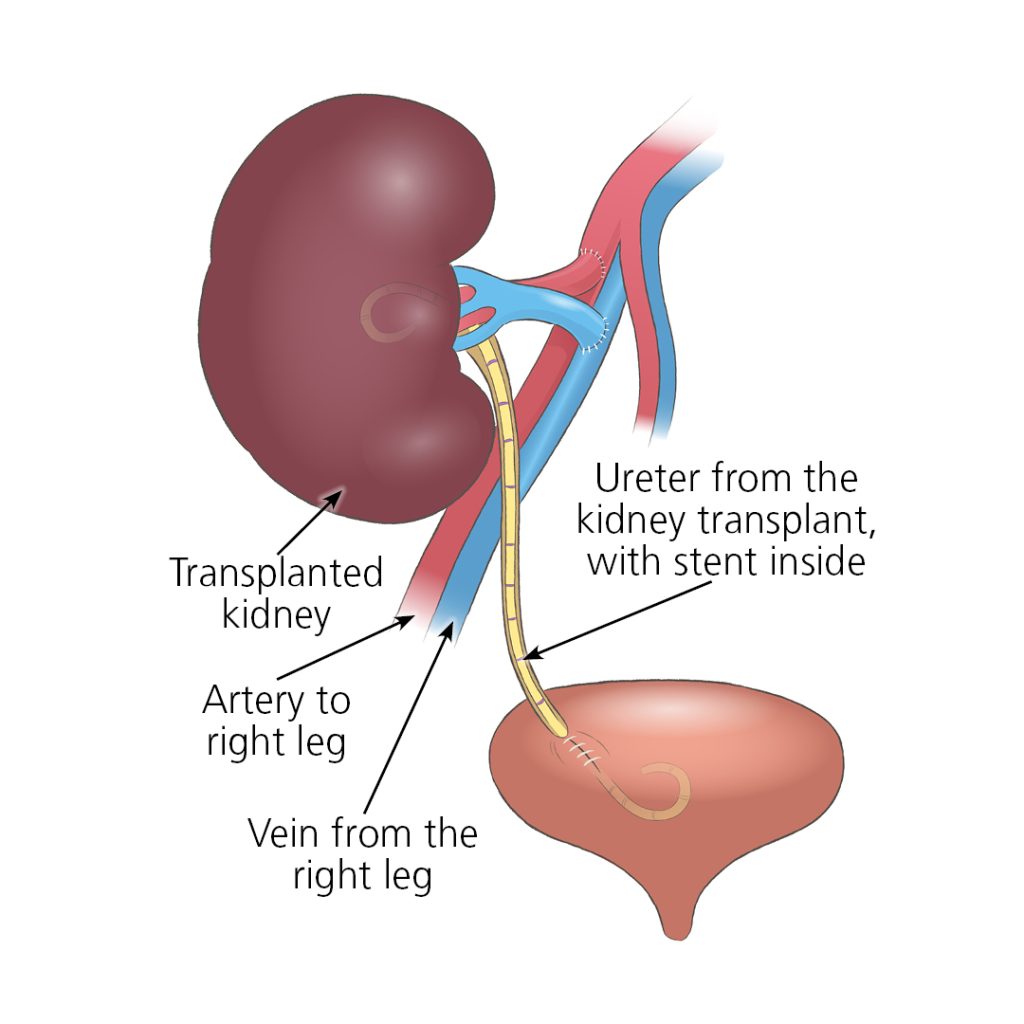BEST LIVER SPECIALIST IN DUBAI
Kidney Transplant

What is a kidney transplant?
A kidney transplant is the transfer of a healthy kidney from one person (the donor) into the body of a person who has little or no kidney activity (the recipient).
Are there different kinds of kidney transplants?
Yes. There are two types of kidney transplants: those that come from living donors and those that come from donors who have died (non-living donors). A living donor may be someone in your immediate or extended family or your spouse or a close friend. A person only needs one kidney to survive. Therefore, unlike other types of organ donation, such as heart, a living person can donate a kidney. Ideally, this will be a close relative. Receiving a donation from a close relative means there is less risk of the body rejecting the kidney.
How do I start the process of getting a kidney transplant?
Your doctor can discuss the transplant process with you or refer you to a transplant center for further evaluation.
What is rejection?
The most important complication that may occur after transplant is rejection of the kidney. The body’s immune system guards against attack by all foreign matter, such as bacteria. This defense system may recognize tissue transplanted from someone else as “foreign” and act to combat this “foreign invader.”
You will need to take medications every day to prevent rejection of your new kidney. Most patients need to take three types. The major one is usually cyclosporine or tacrolimus or sirolimus. In addition, you will most likely be taking some type of steroid and a third medication, such as mycophenolate mofetil or azathioprine. Additional treatment may be needed if a rejection episode occurs. Regular checkups at your transplant center will ensure early detection and treatment of rejection.
What are the side effects of the anti-rejection medications?
Anti-rejection medications have a large number of possible side effects because the body’s immune defenses are suppressed. Fortunately, these side effects usually are manageable for most patients. If side effects do occur, changing the dose or type of the medications will usually take care of them. Some of the most common side effects include high blood pressure, weight gain and a susceptibility to infections and tumors. You may also require additional medications to maintain blood pressure and prevent ulcers and infections.
What are the chances that a transplanted kidney will continue to function normally?
Results of transplantation are improving steadily with research advances. In the event that a transplanted kidney fails, a second transplant may be a good option for many patients.
Will I need to follow a special diet?
Kidney transplants, like other treatments for kidney failure, often require following special diet guidelines. If you were on dialysis before, you may find this new diet less restricted. The length of time you must follow the special diet varies. Your progress will be followed closely, and your doctor and dietitian will change your diet as needed.
What else can I do?
You should inform yourself fully by reading and talking to doctors, nurses and patients who already have kidney transplants. You can also see the National Kidney Foundation publications listed below. If you would like more information, please contact us.
Risks
A kidney transplant is a major surgical procedure with a wide range of potential risks.
In the short term, rejection, infection and blood clots are a risk. Long term risks are usually related to the medication needed to reduce the chance of rejection (immunosuppressants). Because of this people who have had a kidney transplant require regular check-ups for the rest of their life.Living with a transplant
It’s recommended that you:- quit smoking if you smoke
- eat a healthy diet
- lose weight if you are overweight or obese; ideally you want to achieve a body mass index of less than 25.
Outlook
The outlook for a person who receives a donated kidney will depend on a number of factors. These include:
- whether the donation was a living donation or not (living donations usually have a slightly better outlook)
- whether the donation was from a close relative or someone with the same tissue type (this lowers the risk of the body rejecting the kidney)
- the age of the person receiving the donation (the younger the person, the better the outlook)
- the overall health of the person receiving the donation (the healthier a person is, the better the outlook)
The kidney survival times for living donations are:
- 1 year – 90-95%
- 5 years – 80%
- 15 years – 60%
Where kidneys are donated from someone who has recently died, the kidney survival times are:
- 1 year – 85-90%
- 5 years – 70%
- 15 years – 50%
